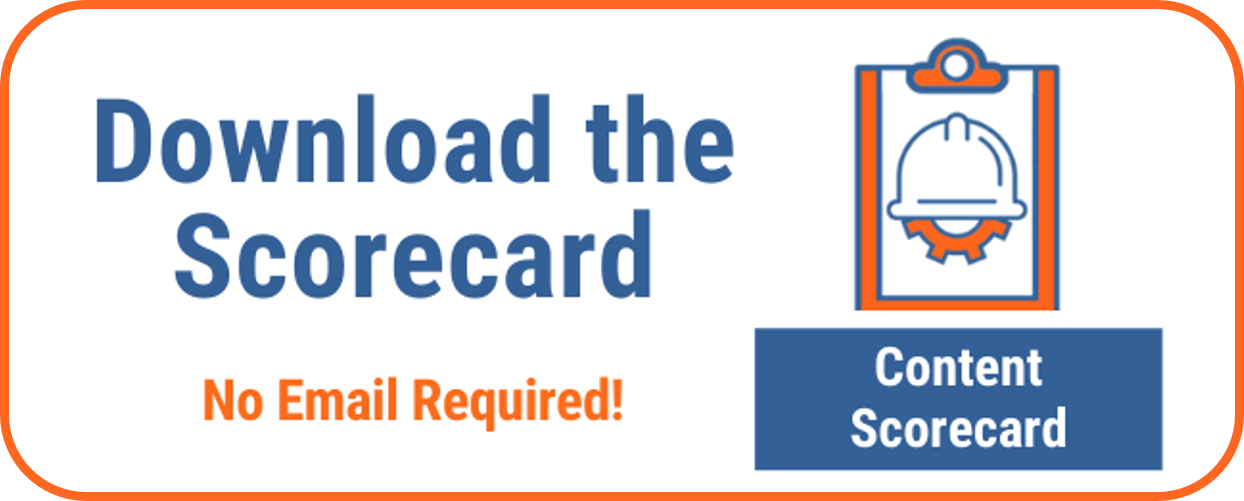You heard it right: This marketer struggles with analytics.
Yes, analytics, the basis for all modern marketing. The lifeblood of the business world. Everything, in the end, comes down to the numbers. And I struggle with them.
Now why would I go public with this statement (and potentially scare the bejeebers out of my clients)? Because I wanted to share what I’ve done to overcome my struggle, and hopefully provide some suggestions for my fellow right-brain thinkers in the process.
When it comes to math, I’m a plodder
My brother used to be a great distance runner in high school. He wasn’t willowy, like most toothpick-thin runners you see in marathons, and he wasn’t fast. “He’s a plodder,” my dad once remarked to me.
Slowly, surely, he plodded on in his races. And he usually won.

I was always good at math classes through junior high school, plodding my way through and doing a lot of homework. But when coursework escalated to pre-calculus, I bailed. I always knew I wanted to be a writer, and I didn’t see where calc would take me.
That was a brash move by a young, cocky kid. My know-it-all attitude gave me courage, but it also made me arrogant. And I missed out on the opportunity to just learn more about the beauty of math, and how it applies to statistics and measurement in general.
So I pursued my copywriting career. And by and large, things went well.
A cozy existence
In the early part of my career, I worked as a copywriter. I was writing print ads, direct mail pieces, and brochures.
I loved it, and I was pretty good at it, according to my employers. I was also shielded from math in this lifestyle. There is an old saying about advertising: “I know 50% of my advertising is working. I just don’t know which half it is.”
Everyone played the ad game, and to be honest, it was a pretty cozy existence.

Then the digital revolution entered the picture.
Madison Avenue gives way to metrics
I kind of chuckle when I tell young talent these days, “When I started, there was no Internet to browse.” I feel like some crusty old-timer, and I can see people envisioning me on a horse delivering the mail.
When the Internet grew, the print ad work went by the wayside. Creative copy became great online content, and that content could suddenly be tracked in terms of its effectiveness by Google Analytics.
Everything I wrote could now be counted.

At this point, I realized there was opportunity in that online content. The world needed a lot of it, and while the thought of every word I wrote being trackable intimidated me, it also presented an opportunity: I could prove my true value to an organization.
But that, my good friends, required metrics.
Finding peace with analytics
The more work I did on writing website content, the more I realized I had to become proficient in Google Analytics and metrics in general. I like software, and I don’t mind working with spreadsheets. I do have good organizational skills, but I’m not intuitive at analysis.
Analytics is, as you might guess, about analysis. The true strength in Google Analytics is not just churning out metrics: It’s understanding what those numbers mean.
Here’s how I’ve managed over the years to get better at my biggest weakness, and my plans for moving forward:
I’ve hired help. I outsource my analytics work. I’ve had the good fortune of working with three great metrics gurus — Jessica Jones, Kyle Akerman, and Ryan Olestro, who currently leads our analytics efforts. All three of these folks love digging deeper.
We’ve worked with great partners. We’ve partnered with some exceptional people and companies, including Chris Hofmann at SequelResponse and Laurel Miltner at Orbit Media. These folks eat Google Analytics for breakfast, and they’ve pushed us to learn and think in new ways.
I’ve read more and leaned into the strategic aspects. Whenever I run into an obstacle, I turn to my go-to survival tactic: I teach myself. I started with one of the great analytics books, written by Avinash Kaushik, Web Analytics 2.0.
I know this is likely dated, but Avinash spoke to me with his advice to “focus on the critical few” — the metrics that really count in regards to your business performance. And also, Andy Crestodina’s book Content Chemistry gives great advice on using analytics: “Ask a question, and use your analytics to find the answer.”
We’ve stepped up our game. I’ve leaned into our analytics approach (visit this page to find out more about measuring marketing effectiveness), driving harder to prove ROI. Our goal is quite simple: If a recession hits a company, instead of our services being the first thing that gets cut, we want to be the last thing they’d consider because we are driving revenue. We’ve held strong through the pandemic by striving for this goal.
Where I need to get back to work
One of my goals in 2020 was to get better at analytics, and guess what? It is for 2021 too. I’ve made strides this past year, but I want to continue to accelerate my understanding of Google Analytics and the field in general.
It will be a plod, I know that. I also know it’s something I just need to get better at if we’re going to continue to succeed for our clients. You’ve got my commitment to take that left brain to new heights.
Excuse me: Make that quantifiable new heights.

